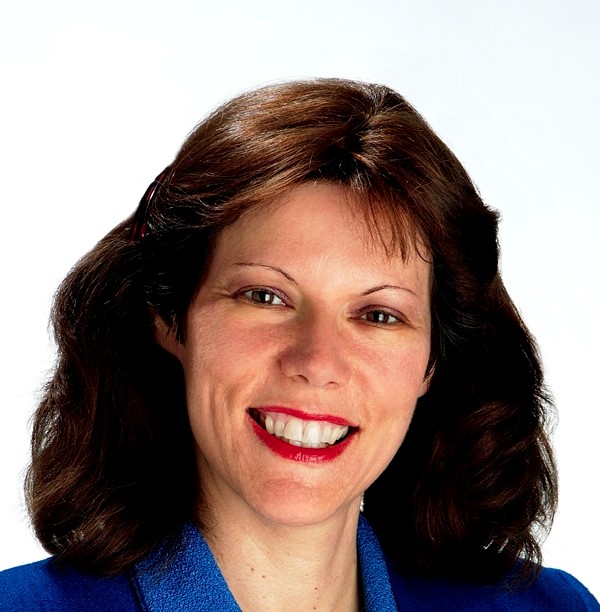Everyone Can Learn

 "Am I dumb or smart?” Rivka Tucker spent years trying to answer this question. She couldn’t understand why she was stumped by basic math calculations but could speak foreign languages with ease. The nagging question ultimately catapulted her to become one of the most renowned experts in learning disabilities.
"Am I dumb or smart?” Rivka Tucker spent years trying to answer this question. She couldn’t understand why she was stumped by basic math calculations but could speak foreign languages with ease. The nagging question ultimately catapulted her to become one of the most renowned experts in learning disabilities.
In Rivka’s home in Israel, concerned parents are constantly calling. The details are different, but the message is the same: “Please help my child.”
The urgency to these phone calls becomes all the more understandable when you consider this statistic: “It’s estimated that about 60 percent of frum boys who left the yeshivah world are learning disabled,” reports Rivka, who has been working in the field for more than 40 years. “Recently, a study was done on girls who have left Jewish day schools and are on the fringes; there, too, we discover a large percentage of learning disabled youth.”
Rivka feels personal responsibility to reach as many of these children as possible. “I hardly sleep,” admits Rivka, who works around the clock and travels regularly throughout Israel. “I believe that children with learning disabilities need an advocate and I put my whole neshamah and life into that.”
Fighting Labels
Behind this devotion is a woman who spent her adolescence struggling to get through the school system. “I went to a prominent non-Jewish girls’ school in Amsterdam,” says Rivka. “When I was a little girl, the only Jewish elementary school was open to anyone who had a Jewish mother or father. Since my father was concerned about putting me into an unclear situation, he enrolled me in public school, where I stayed through my senior year of high school.”
A shy, studious girl, Rivka did well in many subjects. “I learned five languages, including translating,” she says. “But I flunked math. This was in the ’60s when no one heard of learning disabilities and I was labeled lazy and unmotivated. I had to stay behind and repeat 11th grade. All my friends went up. As if it wasn’t enough that I looked different as a chareidi girl, now I also was looked upon as dumb. Staying back a grade only exacerbated the gulf between my classmates and me. It was traumatizing.”
Rivka finished her high school finals, but not without a lot of self-doubt and loneliness. “I had tutors for math — I remember in particular one older woman who taught me at 7 a.m. before school,” Rivka recalls. “Still, I finished high school with a low grade. At the time, there were no specialists like remedial teachers. Since the teachers in school didn’t know how to help me, they stopped trying.”
After graduating, Rivka headed to Gateshead seminary in England. “I loved the learning,” she recalls. “And I didn’t have to know math.”
While she was in Gateshead, a job opened up at a new seminary for baalos teshuvah in Israel. The founder, Rebbetzin Rachel Levi a”h, asked her uncle Mr. Avraham Dov Kohn — who was the principal in Gateshead — for a girl to be her assistant. Rivka still has the recommendation letter from her principal, which stated that she was a highly intelligent girl with firm yiras Shamayim. “That was the first time I saw in writing that I was intelligent,” shares Rivka. “The healing from my high school trauma had begun.”
For two years, starting in 1972, Rivka worked as a madrichah, lived in the dorm, and was a bas bayit by Rebbetzin Levi, who eventually made her shidduch with Yosef Tucker.
“Hashgachah pratis lead me to my new parnassah as a married woman,” Rivka continues. “One day, I was standing at a bus stop with Rebbetzin Levi. While we were getting on the bus, a woman told the Rebbetzin that she was giving a new course about remedial reading in the Bais Yaakov seminary. Rebbetzin Levi told me to take the course because she was worried about what my parnassah would be after I got married since I obviously couldn’t be a madrichah in the dorms. It was such siyata d’Shmaya because no one knew what remedial reading was at the time.” (See sidebar “Learning the A, B, C’s”)
“I loved the class,” Rivka continues. “And I right away understood that if there are reading disabilities, there must be math disabilities, too.” From this course, Rivka developed a tutoring curriculum to help children who had failed to learn how to read in school.
At first, she tutored in two different schools outside of Jerusalem and then on a private basis at home, many hours a week, until 1978, when her third child was born and she decided to devote herself fully to raising her family. Although always keeping a close watch, she never saw any of the warning signs of learning disabilities in her seven children (see sidebar “Early Warning Signs”). Indeed, they all thrived in school.
Oops! We could not locate your form.

